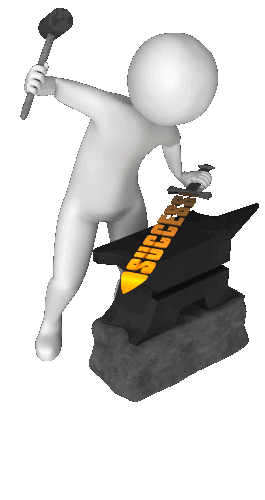“O words, words! Wherefore art thou words?”…” Belonging to a man. O, be some other word! What’s in a word? That which we call a rose, by any other word would smell as sweet…” paraphrased from Shakespeare, Romeo and Juliet, Act 2, Scene 2, Lines 33 – 49.

Recently, I have had the feeling that my aphasia is kicking up again. After more than six months of no headaches and the luxury of having ideas and words flowing almost as easily as they did before my TBIs in 2009, I have very recently hit a dry spell. During the past several weeks, I have found myself in numerous situations where I can’t find the word that I am seeking. Draft after draft finds its way into the trash bin of my computer or the wastebasket in my office. What a waste of time and paper! What’s been just as disappointing and disconcerting is that these spells have coincided with an increase in the number of health concerns. I have started having problems with my right knee (the one that is my original knee; not the replacement knee), a recurrence of extended headaches, and an all-out war with increasing fatigue and my new BIPAP. It seems that I am heading back to the place I was immediately before my knee replacement surgery. There has been no decrease in the generation of new ideas. I am just having to fight to find the right words to communicate the ideas that I clearly see in my head. I can’t write or talk without words.

Through thoughtful and helpful conversations with several friends about my recurring difficulties with words, I have isolated two conditions that I believe are my biggest problems. How is someone with a mild case of aphasia suppose to convey his ideas meaningfully when he finds himself fighting against a double edged sword? The first source of difficulty is strictly internal. With a slicing forehand, the first swipe of the sword attempts to destroy my ability to communicate. How am I to communicate when words that I have used my entire life suddenly disappear? I stubbornly search but I can’t find them in the crevices of my mind? If you will look at one of my earliest posts Words Are More Like Cats Than Dogs (December, 2010), I used a metaphor involving dogs and cats to describe how some words were easily recalled like dogs, while others were as stubborn as cats and just would not come to me. In another early post, Gazing into the Abyss; a Deux (November 2011), I described the hard work of searching for words was very similar to the process of digging for coal on one’s hands and knees, in the deep recesses of a mine. However at the end of the shift, I come out of the mine with an empty coal cart.

The second source of difficulty is primarily external. Even when I find a word that seems right to me, I find it no longer means what I thought it did. Thinking back on my target shooting and hunting days, almost all of the time, stationary targets were easier marks to hit. It becomes much more difficult when the words start acting like moving targets. If the first edge of the sword is battling lost words in my head, then the second edge of the sword strikes me on a backhand swing. The words that do pop into my head no longer have the same meanings and connotations as when I first encountered them. I know that this is not a new phenomenon. The meanings of words have evolved for centuries. For example the word senile comes to us from the Latin senex, meaning “old age.” In ancient Rome, the Senate was the group of wise, old men who were the figurehead government of the empire. The Senate, after careful and considerable deliberations, approved or vetoed laws legislated by the Populous Council of citizens of Rome. Thus by the 14th Century, senile was introduced into the English language as an adjective that simply meant “aged” or “mature.” In those terms, “a senile, old man” is actually a redundancy. In today’s English, senile carries the connotation of having lost cognitive ability. In this sense, senility can kick in at any chronological age. As is the case with many things in today’s world, the rate of change of meanings seems to be increasing exponentially. How do you find the right word when its meaning changes almost daily? It’s like throwing darts at a moving target, while you’re moving also. Even though our character below is right on top of the target, he is still having trouble hitting the bull’s eye.

Fighting this double edged sword is compounding my difficulties in successfully communicating the myriad of ideas that keep flooding into my head. I found myself having to hammer out a message like the famous smithy from the 1840 Henry Wadsworth Longfellow’s poem, “The Village Blacksmith”
Under a spreading chestnut tree
The village smithy stands;
The smith, a mighty man is he,
With large and sinewy hands;
And the muscles of his brawny arms
Are strong as iron bands.
His hair is crisp, and black, and long,
His face is like the tan;
His brow is wet with honest sweat,
He earns what’er he can,
And looks the whole world in the face,
For he owes not any man.
Week in, week out, from morn till night,
You can hear the bellows blow;
You can hear him swing his might sledge,
With measure beat and slow,
Like a sexton ringing the village bell,
When the evening sun is low.
And children coming home from school
Look in the open door;
They love to see the flaming forge,
And hear the bellows roar.
And catch the flaming sparks that fly
Like chaff from a threshing floor.
He goes on Sunday to the church,
And sits among his boys;
He hears the parson pray and preach,
He hears his daughter’s voice,
Singing in the choir,
And it makes his heart rejoice.
It sounds to him like his mother’s voice,
Singing in Paradise!
He needs must think of her once more,
How in the grave she lies;
And with his hard, rough hands he wipes
A tear out of his eyes.

Toilng, — rejoicing, — sorrowing,
Onward in life he goes;
Each morning sees some task begin,
Each evening sees it close;
Something attempted, something done,
Has earned his night’s repose.
Thanks, thanks to thee, my worthy friend,
For the lesson thou has taught!
Thus at the flaming forge of life
Our fortunes must be wrought;
Thus on its sounding anvil shaped
Each burning deed and thought.
Many of life’s important lessons are found in these 8 stanzas, 48 lines and 286 words. We find the physical and spiritual aspects of mankind. We find the human feelings of joy, sadness, exhaustion, and love. We find the virtues of hard work, honesty, humbleness, plainness, strength, perseverance, and stability. The blacksmith is a role model to the whole village, but especially the children. In the face of a multitude of competing forces, he balances his commitments to work, family, and community. The blacksmith is the symbolic “every man.” He stands as the iconic craftsman, standing upright before the onslaught of the coming industrial age. In the face of the inevitable, Longfellow wanted to make sure that we did not forget the agricultural age that birthed his current age. The smithy’s forge is a precursor to the steel furnaces of the 20th Century cities, spewing out the sparks of modernization. The community feel of the village stands in stark contrast to the rash of social isolation that is rampant in the sprawling cities that would soon develop. This poem is an American history and sociology lesson that all of us should remember and take to heart.
Leave a Reply